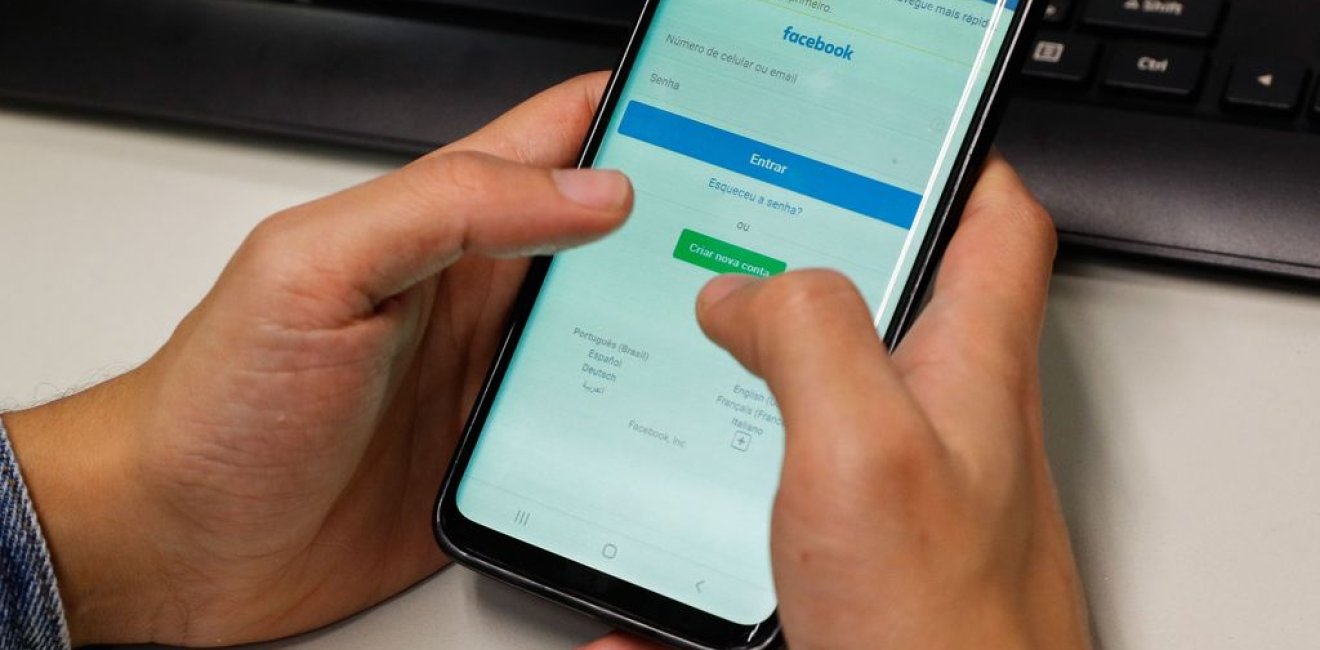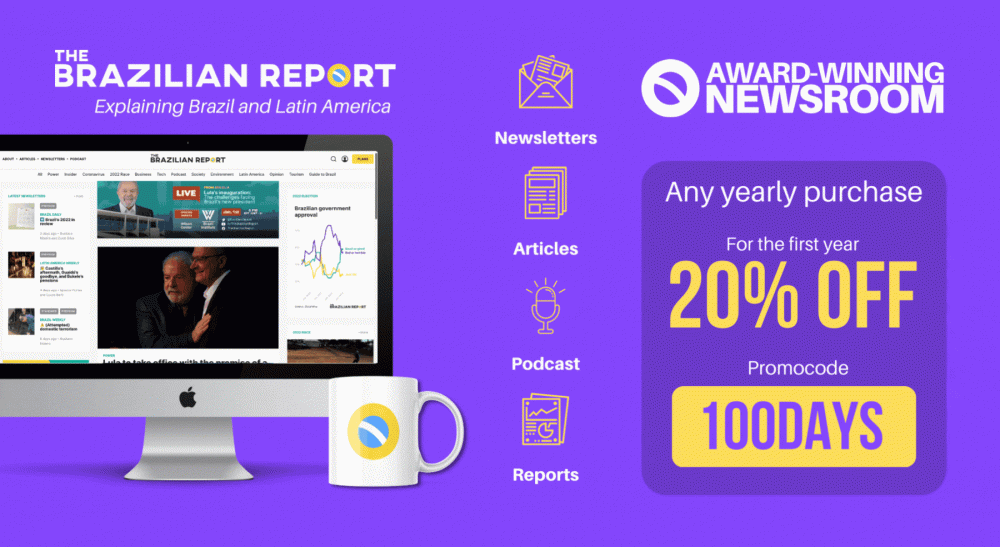How Social Media Platforms Can Engage On Fighting Disinformation
Facebook and WhatsApp parent company says it is not to blame for the spread of disinformation on social media before the January 8 riots

A blog of the Brazil Institute
Facebook and WhatsApp parent company says it is not to blame for the spread of disinformation on social media before the January 8 riots

Amid attempts in Brazil and other countries around the world to regulate social media platforms in the name of restricting hate speech and stymieing the spread of dangerous disinformation, Big Tech company Meta claimed it is "doing [its] part."
In Brazil, fresh and urgent impetus to curb disinformation on social media came in the wake of the January 8 riots, when far-right radicals stormed and ransacked the headquarters of all three branches of government in Brasília. Roused by false information and conspiracy theories spread online, the mob was protesting the 2022 election results, falsely claiming that the presidential race had been rigged in favor of eventual winner Luiz Inácio Lula da Silva.
But in a recent statement, Facebook, Instagram, and WhatsApp developer Meta reiterated that "the responsibility for what happened in Brazil on January 8 lies with those who broke the law by invading and destroying public buildings," and not with its social media platforms.
"And the idea that we did not act to protect the 2022 elections in Brazil is simply not corroborated by the facts or data," the company added.
Brazil is one of Facebook's largest markets, with total user estimates varying between 110 and 150 million, making it an important venue for political discussion in the country. WhatsApp Messenger, meanwhile, is installed on an estimated 99.8 percent of Brazilian smartphones, according to the think tank InternetLab.
Findings from the latest Reuters Institute for the Study of Journalism report show that 58 percent of Brazilians use WhatsApp for their daily news consumption, compared with 46 percent who read the mainstream press. Furthermore, a study published earlier this year in the Rio de Janeiro State University journal Dados concluded that those who consumed political news on Facebook, WhatsApp, or YouTube were twice as likely to vote for far-right former President Jair Bolsonaro in the 2018 election.
Meta claimed that between the start of Brazil's 2022 election campaign last August and the January 8 riots, it removed more than 1 million Brazilian posts on Facebook and more than 960,000 on Instagram for violating its policies on violence and incitement to violence.
The statement added that these included "posts calling for a military intervention" in the country. It is unclear whether this figure includes posts removed following court orders.
Lula's government has made the fight against misinformation one of its early priorities. In its first week in office (just before the January 8 riots), the administration created two official departments to fight online falsehoods: one within the Solicitor General's Office, and another under the president's press department. In mid-February, the Human Rights Ministry created a working group to propose strategies to combat hate speech and extremism online.
Meanwhile, in late January, Justice Minister Flávio Dino promised to present a provisional decree to curb the spread of anti-democratic content on social media, as his office's response to the January 8 riots. However, digital rights activists and members of Brazil's lower house were angered by the idea, as a decree would not allow for legislative debate and consensus on the issue.
The Justice Ministry changed course, and now the plan appears to be to push through the so-called 'fake news bill,' which has been stalled in Congress for more than a year.
However, the bill’s latest version – drafted by Congressman Orlando Silva, a seasoned member of the Communist Party of Brazil – could mean that the law will have the opposite effect to its intent. Included is a provision that would grant politicians “immunity” to their online speech.
Per Brazilian law, elected officials are protected from any sort of criminal or civil liability for their votes, opinions, and speeches. This was a sacrosanct principle inscribed in the 1988 Constitution as a way to bury the 21 years of military dictatorship during which politicians were persecuted – and, on many occasions, jailed and killed – for voicing anti-government views.
Mr. Silva wants to extend that protection to the online world. But think tank ITS-Rio, which studies the effects of technology on society, believes the provision essentially grants politicians a “free pass to spread fake news and disinformation on the web, in the name of parliamentary immunity.”
As it is, the bill would mean that blatantly false content posted by politicians could no longer be deleted by the courts nor the platforms. This provision would be a massive blow as electoral authorities try to draw a line in the sand in regard to misinformation.
The Brazilian Report has shown how untrue content often ranks among the posts with the most engagement on social media. Data from media monitoring company NewsWhip – specifically collated for The Brazilian Report – shows that many of the most shared and commented news reports around President Lula prior the 2022 campaign came from fake-news websites.
The watershed moment for social media in Brazil was Mr. Bolsonaro's election victory in 2018. Running for what was then a minuscule political party, the far-right agitator had almost no airtime on the country's free-to-air TV and radio campaign ads — previously considered the make-or-break factor for Brazil's presidential campaigns.
Instead of fading into obscurity, Mr. Bolsonaro catapulted into serious contention by running his entire campaign on social media, attracting more than double the engagement of his eventual runner-up Fernando Haddad — now Lula's finance minister. Mr. Bolsonaro's remarkable feat, however, also included a barrage of lies and disinformation spread to voters with unprecedented effectiveness and speed.
Ahead of the first round of the 2022 elections, WhatsApp Brazil's head of public policy, Dario Durigan, told The Brazilian Report that the messaging platform was one of the few to "improve its methods to curb in-app virality and honor meaningful interactions between people” since the previous national vote.
The app created an electoral court chatbot that allowed voters to access relevant information about voter registration and polling stations, as well as news verified by a group of fact-checking organizations.
However, WhatsApp has also recently launched a new feature in Brazil that allows users to send bulk messages to thousands of recipients at once. The functionality was supposed to roll out last year but was delayed until after the 2022 elections.

Like the content? Subscribe to the Brazilian Report using the discount code 100DAYS to get 20 percent off any annual plan.

The Brazil Institute—the only country-specific policy institution focused on Brazil in Washington—aims to deepen understanding of Brazil’s complex landscape and strengthen relations between Brazilian and US institutions across all sectors. Read more


The Wilson Center’s prestigious Latin America Program provides non-partisan expertise to a broad community of decision makers in the United States and Latin America on critical policy issues facing the Hemisphere. The Program provides insightful and actionable research for policymakers, private sector leaders, journalists, and public intellectuals in the United States and Latin America. To bridge the gap between scholarship and policy action, it fosters new inquiry, sponsors high-level public and private meetings among multiple stakeholders, and explores policy options to improve outcomes for citizens throughout the Americas. Drawing on the Wilson Center’s strength as the nation’s key non-partisan policy forum, the Program serves as a trusted source of analysis and a vital point of contact between the worlds of scholarship and action. Read more



